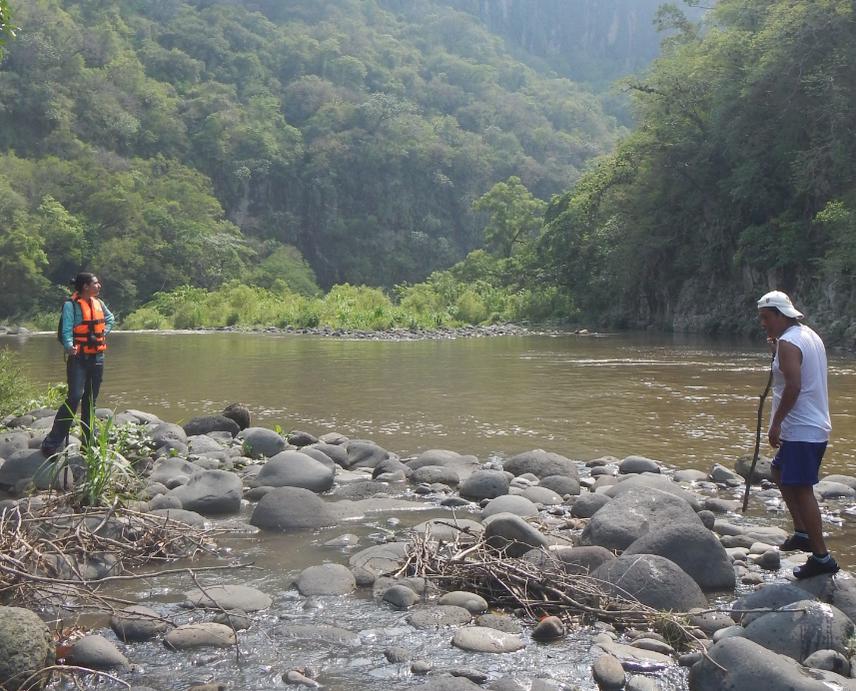María Camila Latorre Cárdenas
Other projects
26 Apr 2016
Participatory Monitoring and Population Ecology of the Neotropical Otter in Veracruz, Mexico
The main objectives are to know whether the persistent organic compounds affect the physiological health and the habitats suitability of the Neotropical otter populations as well as to know their potential impact on human health and in this way to offer alternatives in the use of environmentally friendly pesticides.

This project arises from the concern to know the effects generated by persistent organic compounds (POPs) on riparian ecosystems fauna and the potential effect on human health. Riparian ecosystems are heavily exposed to these compounds due to the transformation of forests to grasslands and the development of croplands in the riparian zones. Once POPs are bioaccumulated by vertebrates, they act as endocrine disruptors, causing damage to its reproductive function and health. Fitness is probably reduced and might be one of the population decline causes for the species. In order to evaluate this, we are going to:
1) quantify the concentrations of organochlorine pesticides and PCBs bioaccumulated by the Neotropical otter, Lontra longicaudis, and the fish and crustacean species she consumes
2) evaluate the effect of this compounds on otter glucocorticoid (cortisol) concentrations as a measure of her physiological health
3) evaluate if these glucocorticoids can be affected as well by disturbances in their habitat such as the conversion of the original vegetation cover to grasslands and crops; the reduction in prey and the presence of human activities.
Finally, we are going to work with the local communities, asking them about the use they make of riverine resources, teaching them about the damage generated by POPs and, if necessary, offering them alternatives in the use of environment friendly pesticides. This project will be developed in the Jamapa River and La Antigua River, located in Veracruz, Mexico. Both rivers have a high anthropogenic pressure originated mainly by the presence of croplands, livestock and the industrial waste discharge.
We think this information is essential to improve management plans and wildlife conservation associated with riparian ecosystems, as any attempt to conserve is in vain if we cannot maintain healthy and reproductively viable wildlife populations. These data also allow identifying which areas of the rivers (upper, medium or lower) have the lowest and highest level of contamination. Finally, these results are necessary to make local communities aware of the harmful effects of POPs and will be the first step for making people part of management and conservation wildlife programs.